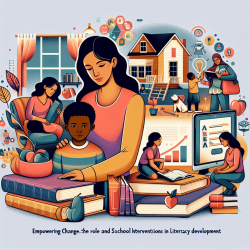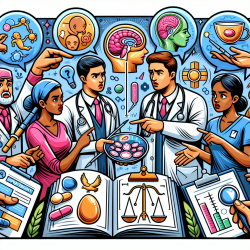Understanding the Challenges Faced by Rural LGBTQ Populations in Healthcare
Research indicates that rural LGBTQ individuals face unique challenges when accessing healthcare services. The study titled "The Message Is You Don’t Exist": Exploring Lived Experiences of Rural Lesbian, Gay, Bisexual, Transgender, Queer/Questioning (LGBTQ) People Utilizing Healthcare Services provides critical insights into these challenges. This blog aims to highlight key findings from this research and offer actionable steps for healthcare practitioners to improve service delivery to this underserved population.
Key Findings from the Research
The study involved interviews with 12 LGBTQ individuals from rural Manitoba, Canada. Thematic analysis of these interviews revealed several significant barriers to healthcare access:
- Stigma and Discrimination: Participants reported experiences of discrimination and stigma from healthcare providers, which led to fears of disclosing their sexual orientation or gender identity.
- Lack of Knowledge: Many healthcare providers lacked understanding of LGBTQ-specific health needs, leading to refusals of care or inappropriate treatment.
- Systemic Barriers: Forms and systems often failed to recognize non-binary identities, sending a message of non-existence to these individuals.
- Rural Considerations: The lack of anonymity and supportive services in rural areas exacerbated these issues, making it difficult for LGBTQ individuals to find safe and accepting healthcare environments.
Recommendations for Healthcare Practitioners
Based on the findings, the study offers several recommendations for healthcare practitioners:
- Enhance Cultural Competence: Continuous education and training in LGBTQ health issues are crucial. Practitioners should strive to understand the intersectionality of identities and how these affect health outcomes.
- Create Inclusive Environments: Healthcare settings should visibly support LGBTQ equality, including inclusive language on forms and visible signs of acceptance.
- Advocate for Systemic Change: Practitioners should work towards systemic changes that acknowledge and validate diverse identities, ensuring that all patients feel seen and respected.
- Improve Communication: Effective communication strategies that respect and affirm LGBTQ identities can enhance trust and improve health outcomes.
Encouraging Further Research and Action
While this study provides valuable insights, further research is needed to explore the healthcare experiences of rural LGBTQ populations in different contexts. Practitioners are encouraged to engage with ongoing research and contribute to the development of inclusive healthcare practices.
To read the original research paper, please follow this link: "The Message Is You Don’t Exist": Exploring Lived Experiences of Rural Lesbian, Gay, Bisexual, Transgender, Queer/Questioning (LGBTQ) People Utilizing Healthcare Services.










